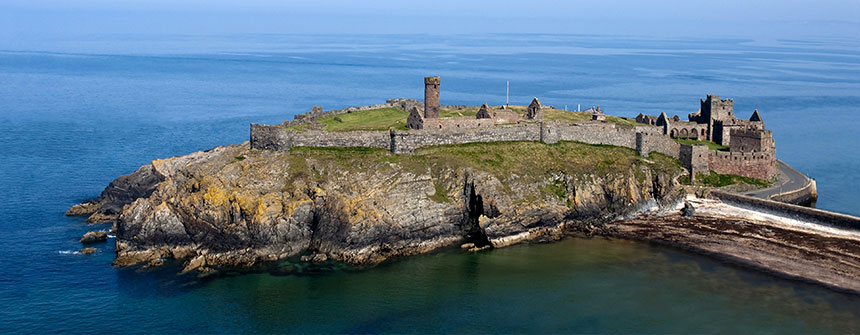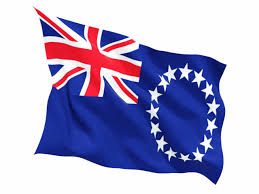
Asset protection is a critical part of financial responsibility. Liability is a byproduct of doing business. Nearly all businesspeople face possible lawsuit claims. Practitioners in high-liability fields such as healthcare and construction are at even greater risk. Asset protection trusts have gained a reputation for being one of the best legal tools available. Moreover, case law repeatedly shows that offshore trusts are more effective than their domestic counterparts. We discuss the function of asset protection trusts, the reasons for going offshore, and the world’s best offshore jurisdiction below.

How Does An Asset Protection Trust Work?
The type of asset protection trusts we discuss here are irrevocable self-settled spendthrift trusts. An irrevocable trust is a trust which a settlor cannot modify or terminate without cooperation between the settlor and/or beneficiaries and trustee. Technically speaking, the settlor of the trust removes their legal right to ownership of the assets placed in the trust. A self-settled trust is a trust in which the settlor acts as a trust beneficiary. The settlor of the trust places control of the trust assets into the hands of the trustee. In some jurisdictions, the settlor may act as a co-trustee. As a result, depending on the jurisdiction, the settlor has a degree of influence over distributions of assets made to the beneficiaries.
It is imperative that the trustee controls distributions made to the settlor. This is because if the beneficiary could independently distribute assets the courts could force his or her hand to distribute them to creditors. Thus, the trust shields assets held in the trust from creditors as a result of this restriction of power. Since the settlor and beneficiaries cannot control distributions to themselves, the courts cannot readily force them to make distributions to others.
There are a number of jurisdictions which offer asset protection trusts. We call these trusts settled in the United States domestic asset protection trusts. Domestic asset protection trusts are currently allowed in 17 states in the United States.
Offshore asset protection trusts, such as those located in the Cook Islands and Nevis, provide a number of benefits which make them preferable to domestic asset protection trusts. We discuss the reasons why below.

Why Set Up An Offshore Trust?
Many of the top offshore jurisdictions have laws which serve to support the protection afforded by asset protection trusts. The following benefits make offshore trusts one of the best legal tools available for asset protection:
Financial Privacy
In many favorable offshore jurisdictions, the settling of asset protection trusts is a private matter. In these jurisdictions, the trust, itself, and the names of beneficiaries and settlers are not publicly recorded. The name of the trust, the trustees’ names, and the date of the trust deed are registered. Records in these jurisdictions are not open to the public. One must obtain a local court order for a valid claim, such as fraudulent transfer, before viewing records. Financial privacy is an important first step for asset protection. Avoiding ostentatious displays of wealth reduces the risk creditors or money-hungry litigants viewing you as easy prey. In the end, however, privacy alone is not enough. Once the sheet is lifted, the best offshore trust jurisdictions offer strong protective legislation as well.
Protection From Foreign Judgments
Favorable offshore jurisdictions do not recognize the judgments of foreign courts. Those who wish to make claims against assets held in an offshore trust must do so through the local court system. This often involves physically traveling to the jurisdiction to appear in court. Additionally, one of the few claims which can nullify the protection of an offshore asset protection trust is a fraudulent transfer ruling. Fraudulent transfer, by the way, is a civil matter, not a criminal one.
Fraudulent transfer of assets occurs when the settlor of a trust transfers assets with the intent to knowingly delay or defraud a creditor. The cost and time associated with making such a claim in an offshore jurisdiction is usually enough to deter creditors. Moreover, a creditor obtaining a fraudulent transfer ruling in a jurisdiction such as the Cook Islands, Nevis or Belize is easier said than done; much easier. In fact, we are the largest organization in the world that establishes offshore trusts. We have never seen a creditor obtain a such a ruling overseas against any offshore trust we have established.

Short Statute of Limitations
Offshore asset protection trust jurisdictions generally offer shorter statutes of limitations than most domestic asset protection trust jurisdictions. Additionally, the burden of proof for fraudulent transfer claims is much higher in offshore jurisdictions. The burden of proof is placed upon the creditor. In many domestic jurisdictions, the burden of proof for fraudulent transfer is clear and convincing evidence. In favorable offshore jurisdictions, the burden of proof is beyond a reasonable doubt. A creditor must provide the same amount of evidence to convict a person of fraudulent transfer as would be needed to convict a person of murder.
For example in the Cook Islands one must bring a fraudulent transfer claim within one year of the trust being established and funded. Additionally, they must bring it within two years of the cause of action. That is, the reason why someone filed the lawsuit. If someone files a fraudulent conveyance lawsuit in the Cook Islands after this timeframe, the courts will refuse to hear the case. Let’s be clear here. Even if someone beats the clock and timely files the case, the barriers are so high that we have never seen our client lose trust assets to a creditor.

Beneficial for Tax Planning
Many favorable jurisdictions provide a tax exemption for international trusts. This can make offshore trusts an attractive tool for tax planning. This varies by the jurisdiction of the settlor and beneficiaries. U.S. people are taxed on worldwide income. So, for the U.S. person the trust is tax-neutral. There is no increase or decrease in taxation. Thus, for the U.S. citizen, the trust acts as bulletproof glass. The lawsuit bullets don’t penetrate. However, the taxes shine through as does light through the glass.
Retention of Control By Settlors
Offshore trusts in the best jurisdictions offer settlors the potential to maintain a greater degree of control over trust assets. One way to do this is by establishing an offshore limited liability company in conjunction with an offshore trust. The offshore trust wholly owns the LLC. One transfers assets into one or more bank and/or investment accounts that the LLC own. The settlor is then named the initial manager of the LLC. As a result, they are able to control the day-to-day functions of the company that the trust own. This includes the ability to control the assets which are held by the company.
When litigation threatens the assets, one does not need to shuffle assets. There is simply a change of management of the LLC. The trustee takes an additional role as manager of the LLC. So, when the local courts demand repatriation of trust funds, they do not have jurisdiction over the foreign trustee. In our case, our law firm the Cook Islands or Nevis steps in to protect trust assets. The assets remain in the LLC that the trust owns. So, there is no fraudulent conveyance of assets, only a management change.

Protection During Legal Duress
Offshore trusts can be effective tools for protecting assets while under legal duress. This is because offshore trusts separate the legal and beneficial interest of assets held within the trust. Since the settlor of the trust may not control distributions of assets to themselves, it can protect those assets from creditors. Additionally, the trustees of offshore trusts are prohibited from distributing assets that a creditor can seize when the settlor of the trust is under legal duress. The trustee may, however, pay bills on behalf of the settlor. They may also be able to make distributions of assets to a trusted friend or relative on behalf of the settlor.
Beneficial for Succession Planning
A number of favorable offshore jurisdictions have no rule against perpetual trusts. As a result, offshore trusts make great tools for estate planning. As a result, future of the trust provide support across several generations. Additionally, offshore jurisdictions do not recognize foreign inheritance laws.

Cook Islands: The Best Offshore Trust Jurisdiction
When it comes to settling an offshore trust, jurisdiction is everything. First and foremost, trusts are subject to the laws of the jurisdiction where they are established. As a result, it is essential to choose a jurisdiction with laws that are favorable for asset protection. Second, the laws of a jurisdiction are only as powerful as the government that enforces them. For this reason, one must also consider the developmental status, government stability, and economic fitness of a jurisdiction. The Cook Islands combines the world’s strongest asset protection laws with a stable government and steady economy. For these reasons, the Cook Islands are widely considered to be the best asset protection trust jurisdiction in the world.
The Cook Islands can be found in the South Pacific Ocean between Hawaii and New Zealand. They were sighted by Captain Cook in 1770, which is how they received their name. The Cook Islands became a British protectorate in 1888. Administrative control of the islands was passed to New Zealand in 1900. The Cook Islands have been self-governed since 1985. Cook Islands is an associated state of New Zealand under free association.
The Cook Islands have a GDP of nearly US$ 300 million. About 8% of this GDP is derived from international business and trusts. The largest sector in the Cook Islands is tourism. This is a result of the country’s beautiful beaches and vibrant culture. The English-speaking nation is composed of 15 separate islands. They make up a land area of roughly 92 square miles.
Cook Islands Trust Advantages
One of the greatest advantages that the Cook Islands has over other asset protection jurisdictions is legal precedent. Asset protection laws will only work to protect assets if local courts uphold them. Simply assuming that the courts will uphold asset protection laws is a dangerous game. In many asset protection trust jurisdictions, especially domestic jurisdiction with newly formed asset protection trust laws, there is no legal precedent for asset protection.
Legal precedent is absolutely essential in order to make sure that assets will be protected in the event of legal duress. The Cook Islands trust has the best asset protection case law history of any jurisdiction in the world. Literally thousands of cases regarding asset protection have been tried in Cook Islands courts. Time and time again, these courts have ruled in favor of protecting assets on behalf of the settlor. As a result, settlors of Cook Islands asset protection trusts can rest assured that their assets will be shielded from creditors.
Reputation is also important when choosing an asset protection trust jurisdiction. Some offshore trust jurisdictions have fallen under security for being used by multinational corporations to evade taxes. Even worse, some jurisdictions have been linked to use for the funding of terrorist activities or for money laundering. The Cook Islands have managed to escape this scrutiny. The Cook Islands offers settlors of asset protection trusts the ability to legally protect their assets. It allows them to do so without creating the appearance of taking part in any unsavory financial activities.
Conclusion
Asset protection trusts are one of the best ways to protect assets from creditors and liabilities. For the above reasons, our experience shows that an offshore asset protection trust settled in the Cook Islands provides the best asset protection available worldwide.


